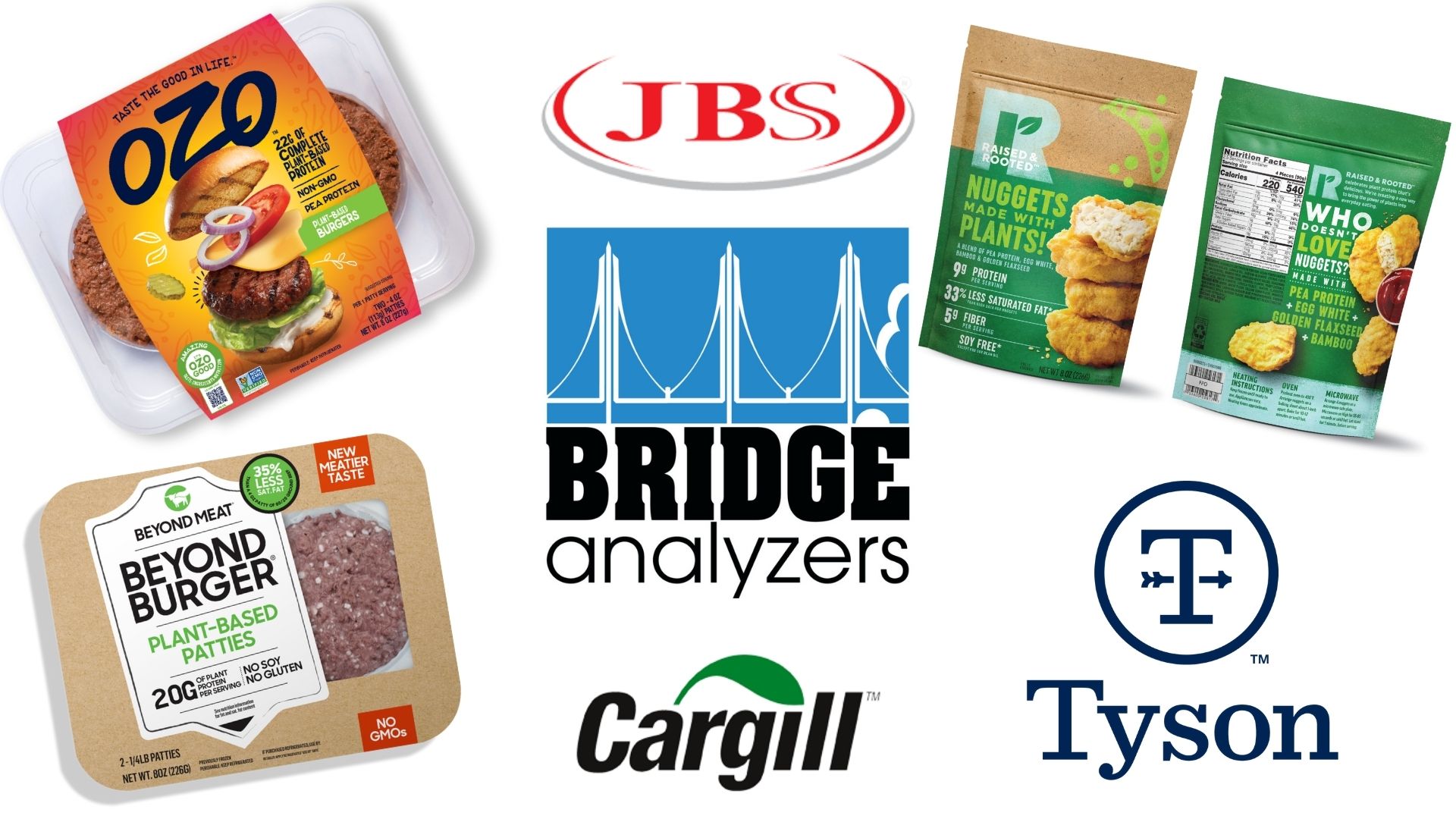The food we eat is intimately connected to life on earth. It affects human health, the safety of our air, land, and water, and the well-being of communities around the world. When we understand the web of connections behind what we eat, all of us have a duty to make the right choices. Every seed, every step, every purchase matters — today and for the future of our planet.
This quotation comes from one of the leading pages on the website of Puris, a pea protein producer that provides the pea protein for Beyond Meat. The ethos found in the above quotation is a good summation of what many of the leading meat companies in the world are now realizing: industrial meat manufacturing is not a very sustainable or environmentally friendly endeavor and alternative protein sources are necessary if the growing global population is going to be fed in an effective and environmentally sustainable fashion.
While you may confidently assume that the big, global meat companies like Tyson, Cargill, and JBS are opposed to plant-based protein as a possible meat market disruptor, you would be wrong, as JBS, Cargill, and Tyson have invested heavily in this burgeoning market space in recent years. Their theory is basically, if it is coming and we can’t stop it, we may as well make money off of it. And that is just what they are doing.
Cargill, Puris, and Beyond Meat
Between 2018 and 2019 Cargill invested $100 million USD in the largest pea protein producer in the country, Puris, in hopes of monetizing the forecasted growth of the plant-based protein market. While consumers may not see the Cargill brand retail-side, they will definitely notice the brand that their pea protein investment buttresses, Beyond Meat. Beyond Meat was one of the first branded, plant-based protein companies to enter the market in 2012. Their stated goal is to help humans eat healthier, fight climate change, preserve natural resources, and help animals live better, and doing all of this by making meat with plants.
Asked about how the food industry will address the world’s growing demand for protein in light of the growing concerns about greenhouse gases linked to beef production, David Maclennan, CEO of Cargill responded:
It means we’ve got to develop alternative sources of protein. We are in plant protein, for example, pea protein. We were one of the first to the market with a plant-based protein patty… And then you’ve got protein coming from fermentation. So we are changing our portfolio to create alternatives and create choices for consumers for food that they see as being better for them, that is produced in more sustainable ways, that is the complement to traditional animal protein. But emerging economies still want to consume protein in its purest form, which is animal protein. That business isn’t going away.
As is clear from Maclennan’s statement, while plant protein is a new market on which they are focusing, they are still a meat company at the end of the day. While there has been a lot of media attention surrounding plant-based protein as the protein source of the future, as of 2020, plant-based protein only made up 1% of the total protein landscape, and while growth is expected in coming years, the leading meat producers are not concerned about being disrupted any time soon.
JBS and Planterra Foods
JBS, the biggest meat producer in the world, is also getting into the plant protein game, but in a slightly different way than Cargill. While Cargill invested in Puris, who produces pea protein for Beyond Meat, JBS started their very own plant-base protein company, Planterra Foods. Planterra Foods is a Denver, Colorado based company, fully-funded by JBS. Their first retail brand is OZO, which offers plant-based burger patties as well as ground plant-based meat. Their proprietary blend of pea and rice protein which is then fermented by shitake mushrooms, is not only vegan, but also soy-free and non-GMO. Being non-GMO and soy-free is very important to them as some of the bigger competitors in the plant-based protein market, such as Impossible Foods, cannot claim this, basing their proprietary plant-protein blends on soy and GMO ingredients.
Tyson’s Plant-Based Protein Brand Raised & Rooted™
With JBS and Cargill hedging their bets on the future of protein consumption via plant-based options, Tyson has also jumped into the plant-based protein market by creating their own brand of plant-based protein offerings in the form of their new brand Raised & Rooted™. According to their website,
Raised & Rooted was created to raise taste expectations of plant based foods with products that are rooted in how people eat today. Our products are for people who want to make more nutritious choices—but enjoy the same meaty foods they love. How do we do it? We take your favorite foods and re-create them with the nutritional power of plants—making them more wholesome and more flavorful than you thought possible.
So, with the world’s top three meat producing companies all heavily invested in the plant-based protein space, it is safe to say that this market is not going anywhere but up. With that in mind, this nascent market space will require the same high level of quality control and quality assurance measures that its traditional protein precursor, that is meat, has had for the last several decades. Which brings us to the need to implement a high quality modified atmosphere packaging gas analysis system when it comes to packaging this new type of product.
Meat and Plant-Based Protein Both Require MAP Gas Analysis
At Bridge we are proud to provide JBS, Cargill, and Tyson with the Modified Atmosphere Packaging Gas Analyzers that they need to keep their various meat products fresh, shelf-stable, and delicious. As these same customers continue to grow their plant-based protein businesses, we want them to know that we will be there to continue supporting them in all of their MAP Gas Analysis needs.
